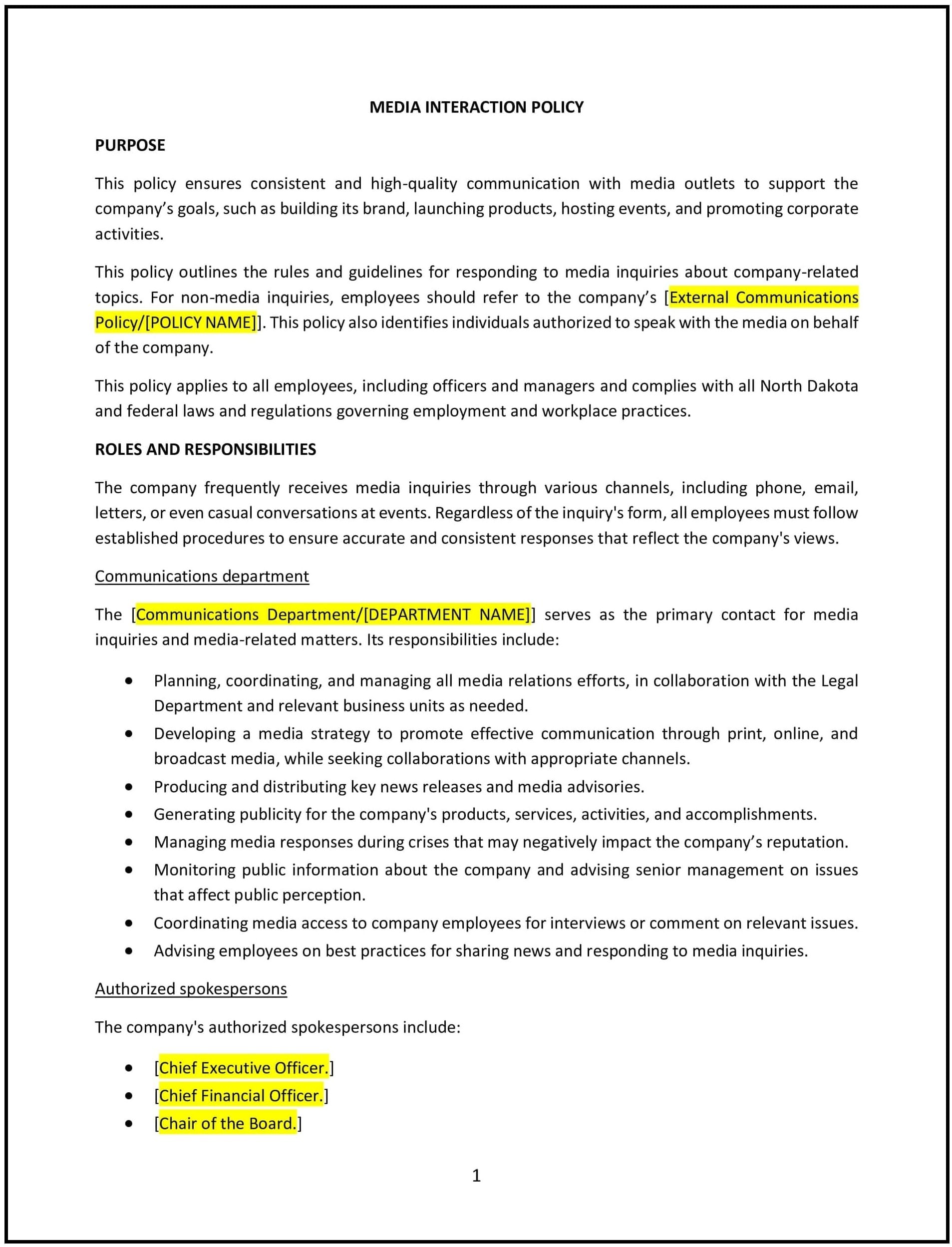Media relations policy (North Dakota): Free template
Got contracts to review? While you're here for policies, let Cobrief make contract review effortless—start your free review now.

Customize this template for free
Media relations policy (North Dakota)
This media relations policy is designed to help North Dakota businesses establish guidelines for managing external communications with journalists, media outlets, and public relations representatives. The policy outlines spokesperson roles, media inquiry procedures, and confidentiality requirements.
By implementing this policy, businesses can ensure consistent messaging, protect company reputation, and maintain compliance with public communication standards.
How to use this media relations policy (North Dakota)
- Define spokesperson roles: Assign designated employees to handle media inquiries.
- Establish approval procedures: Require authorization before providing public statements.
- Set media inquiry response protocols: Outline steps for responding to interview or press requests.
- Address confidentiality: Prohibit unauthorized disclosure of proprietary or sensitive information.
- Provide crisis communication guidelines: Establish procedures for handling negative media coverage.
- Offer media training: Educate employees on appropriate interactions with journalists.
- Review regularly: Update the policy to reflect changes in communication strategies and public relations trends.
Benefits of using this media relations policy (North Dakota)
Implementing this policy provides several advantages for North Dakota businesses:
- Ensures consistent messaging: Maintains uniformity in external communications.
- Protects business reputation: Reduces the risk of misinformation or unauthorized statements.
- Improves crisis management: Provides a structured response for media-sensitive situations.
- Enhances public engagement: Supports strategic media outreach and branding efforts.
- Reflects North Dakota-specific considerations: Addresses regional media outlets and industry-specific coverage.
Tips for using this media relations policy (North Dakota)
- Require employees to direct media inquiries to designated spokespersons.
- Train managers on crisis communication strategies.
- Establish protocols for handling negative or misleading press coverage.
- Maintain consistency in media messaging and public statements.
- Adjust as needed: Update policies based on emerging media trends and company developments.